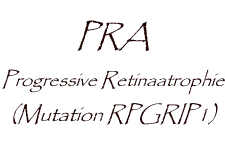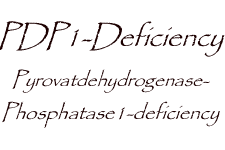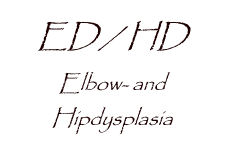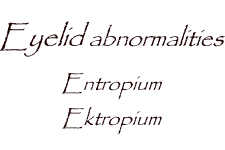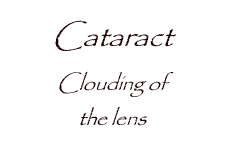|
The problem with genetic diseases of course is that the more animals – whatever the reason is – are taken off from breeding, the gene pool becomes smaller and new diseases easier will become manifest. Also for this reason - especially with such a very “manageable”/small gene pool like with the Clumber Spaniels -, always again new genetic diseases appear – diseases, which not occurred in the breed before or simple were not recognized. Very current, now a late upcoming kind of PRA is on focus, whose carriers “across the lines” were detected. Beyond there are genetic diseases, which not – or not yet –can be recognized by genetic tests and so can’t be avoided, like for example joint diseases, of which causes are not completely resolved and genes as well as also food, rearing and keeping conditions can have influences. The opinions of specialists on that are very different too. Also controversial is the statement of some breeders, that too much activity of puppies can cause HD. Till today this theory could not be proved. Below you can find the link for information of the GRSK on this subject. A further item are diseases that arise as a result of breeding exaggerated traits such as eye problems due to excessive facial skin....too heavy heads, Also an exaggerated breeding goal - often serious, painful and sometimes even fatal for the Clumber - is the special one long body, which back or spine diseases such. B. Herniated discs and spondylosis can occur more frequently in the Clumber, additionally favored by being overweight and not having enough muscles, by too less and/or wrong movement. Already in puppyhood there is often overfeeding and a lack of exercise, which prevents the development of the healthy, strong postural muscles that are urgently needed. The Kennel Clubs also mention some items which are to be noted with the Clumber Spaniel. Now to the currently known and more common (hereditary) diseases of the Clumber. Here
you can find hyperlinks to information and statements: 2. Diseases whose causes or heredity/inheritance have not been fully clarified yet ...or various factors have an influence on the outbreak of a disease. This list doesn't
make a claim on completeness! .... and - like the links - will
be updated regularly. In breeders - just like dog owners - there are certainly different opinions ....... and due to different breeding aims there are certainly different priorities, but the first should be always: "A healthy, pain-free and long life for our beloved four-legged friends!" ..... and not any show or working champion titles - Stand April 2020 -
PRA Unfortunately, for this late outbreaking eye disease a validated test has become available just quite recently. It would be all the more important that even older - over 8 years old - Clumber Spaniels get eye tested.... and the results would be reported to the health coordinators of the clubs too! Statement of the Clumber Spaniel Club on PRA (UK) Symptome, Erbgang, Diagnose usw. von PRA
PDP1-Deficiency Symptome
und Genetik von PDP1
EIC Factsheet
of the Working Clumber Spaniel Society about EIC
ED & HD
Factsheet of the Working Clumber Spaniel Society about HD/ED
Entropium & Ektropium Factsheet of the Working Clumber Spaniel Society about Entropium & Ektropium Infos zu Lidfehlstellungen allgemein Erbliches Entropium / Erworbenes Entropium
Cataract Ursachen und Symptome des Grauen Stars Verschiedene Formen des Grauen Stars
COI https://drive.google.com/file/d/18QgVDBGEsmJXNjDuxczMuILYyulrV7fZ/view
|
_____________________________________________________________________________________________________
All rights by
![]() 2011 - 2023 Hinweis
2011 - 2023 Hinweis
Clumber Spaniel (Genetic-) Diseases














